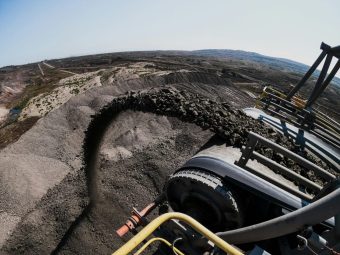
Heating accounts for almost 20 per cent of energy use in industry and buildings globally, and about one-quarter of energy-sector emissions. China’s buildings and industry sectors account for about one-third of global heat consumption and therefore have a major influence on global trends. Heat consumption in buildings has grown faster in China than in any other country over the past decade, making China the second-largest market for space and water heating in buildings today, just behind the United States, with an energy demand for both these uses of around 12 EJ. This trend shows no sign of slowing down as uptake of heating equipment in China continues to increase. In Chinese industries, heat consumption grew by 13 per cent between 2010 and 2022, reaching 38 EJ. Nearly 20 per cent is accounted for by low- and medium-temperature heat, below 200 °C, which is the most suitable range for heat pump applications. Consumption of heat below 200 °C grew by 7 per cent over the same period, and its share in overall demand will increase as China shifts to higher value-added industries.
Today, heating provision in China is heavily reliant on coal. The direct use of coal for heat supply accounts for around half of final energy use for heating in buildings and industry. If coal used in district heating and to generate electricity for heating in buildings and industry is included, heat provision is responsible for 40 per cent of national CO2 emissions and coal use in China. However, this share has fallen by more than 5 per cent over the past decade, thanks to policies to improve air quality, reduce CO2 emissions and maximise energy efficiency.
More:
- ONE IN FOUR EVS SOLD IN EUROPE THIS YEAR WILL BE MADE IN CHINA – ANALYSIS
- ELECTRIC CARS FROM CHINA ARRIVE IN GERMANY
- CHINA’S PETROCHEMICAL SURGE IS DRIVING GLOBAL OIL DEMAND GROWTH
Heat pumps offer a proven solution for decarbonising low- and medium-temperature heating
Heat pump sales are seeing unprecedented momentum worldwide. Global heat pump sales have increased by almost 30 per cent since 2020, although there was a 3 per cent decline in 2023. China – currently the world’s largest market for heat pumps for buildings – accounts for more than one-quarter of global sales, and in 2023 China was the only major market where heat pump sales grew, by a robust 12 per cent. Heat pumps that are already on the market in China offer one of the most efficient options for decarbonising heat in district heating networks, buildings and industry. Heat pumps accounted for 8 per cent of heating equipment sales for buildings in China in 2022, and they are already the norm in new and existing buildings in some areas of central and southern China, where they are used for heating and cooling. The use of heat pumps for domestic hot water production is emerging, primarily in urban areas and commercial buildings, but the water heating market is still dominated by conventional electric heaters and gas boilers. Heat pumps consume on average three to five times less energy than electric heaters or fossil fuel-based solutions, though use in industry and district heating is still uncommon, in part due to low awareness and upfront costs.
Purchasing a heat pump typically pays off in the long run compared with other solutions, but high upfront costs remain a barrier. In China, air-to-air heat pumps are already the most cost-competitive heating option over their lifetime in some colder climates, and in cities with hot summers and cold winters, where they meet both heating and cooling needs. Air-to-water heat pumps, meanwhile, offer lifetime savings when compared to electric heaters, which cost less upfront but have low efficiencies. In contrast, air-to-water heat pumps are more expensive than gas boilers and only offer savings over their lifetime in areas with a competitive electricity-to-gas price ratio. The upfront costs for industrial heat pumps are over six times higher than for gas boilers, but over their lifetimes they are already far cheaper than gas and electric boilers, and nearly cost-competitive with coal boilers, thanks to their high efficiency.
Read the full text here.
Source: IEA



